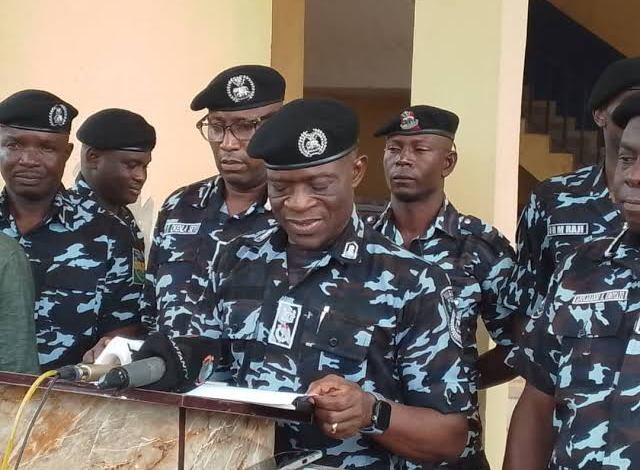
The Chairman of the Independent Media and Policy Initiative IMPI, Dr Omoniyi Akinsiju, wants the Nigerian media to be more circumspect in reporting the security situation in the country.
This, according to him, is because more attention is paid to challenges in the war against banditry and terrorism than the gallant efforts being made by the security agencies and government to stem the tide.
Speaking in a paper titled ‘Importance of the media in information gathering and disclosure in the face of security challenges at the 6th Timeline Awareness Initiative Lecture/Awards in Lagos, Dr Akinsiju believed that national interest should be considered in reporting security issues.
He cited earlier empirical studies on the role of the media in peacebuilding to support his position, “Drawing from this, researchers of conflict situations in Nigeria have noted that for different reasons and in different ways, media coverage of Boko Haram and the bandits have been similarly destabilizing of the Nigerian state.
“In short, the perception is that the media approach to reporting news on conflict and organized crime in Nigeria has tended to make things worse by generally helping to weaken the state’s response to those issues.
“Perhaps, this was the spectacle agitating the mind of Nigeria’s Minister of Information and National Orientation, Mr Mohammed Idris, when he publicly appealed to journalists to not give “undue attention” to bandits and other criminals terrorizing the country by reminding journalists that “bandits, terrorists, kidnappers and pirates are waging not only a physical battle but also a psychological war to undermine the morale of the Nigerian military.”
Akinsiju noted that a similar view was expressed during the last administration at the height of the war against insurgency in North East Nigeria
He said: “Three years before Mr Idris raised the alarm over the nature of media reporting of banditry and other criminalities in the country, his immediate predecessor, Mr Lai Mohammed had suggested that the media in Nigeria reported bandit attacks more than the success recorded by the government and security forces. Thus stressing the need for the media to provide “positive coverage of the successes” to encourage the affected states, security agencies, and the federal government.
To reinforce his call for a more nuanced coverage, the media and policy analyst used the developed countries as an example of jurisdictions where the adversarial style of reportage is jettisoned when national interest is involved.
“The received wisdom on this question is the Western-style liberalist perspective, which holds that the media should take an adversarial stance against the state to hold the government accountable and safeguard the rights of citizens.”
“But when the issue pertains to the state itself, as distinct from the government of the day, such as an existential threat or a challenge to the dominant ideologies of democracy and capitalism, or even of rivalries between states in international affairs, the media will adopt subtle, sometimes so subtle approaches to doing news in ways that stand by the state,” the IMPI chairman added.
“This should be the benchmark of the relationship between media practitioners and the military authorities in conflict situations across the country,” Akinsiju opined.


